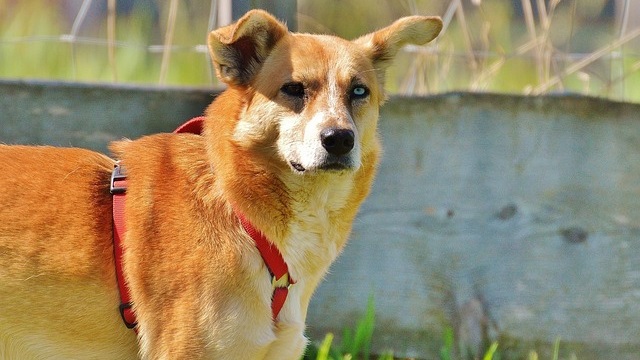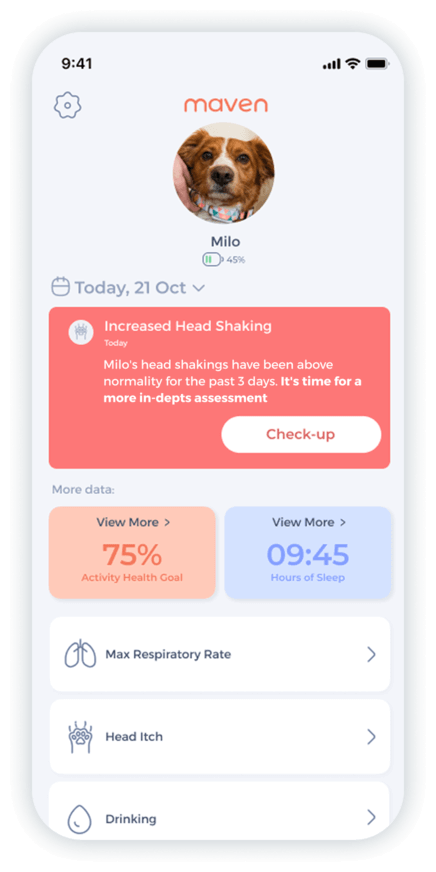Why Is My Dog’s Stomach Making Noises? Causes and Relief (Vet Verified)
If you’ve ever heard those little gurgles coming from your pup’s belly and wondered, “Why is my dog’s stomach making noises?”, you know it can stop you in your tracks. It’s not an uncommon occurrence, as it can be just a normal part of digestion. Other times, it can be a sign of an underlying issue, so it’s not something to brush under the rug either. In this guide, we’ll dig into the most common causes, when to ring up your vet, and what you can do to help your four-legged friend feel better.
Key takeaways:
- Stomach noises are often part of normal digestion.
- Loud or weird sounds can hint at underlying issues.
- Gas, hunger, or gut upset are common culprits.
- Persistent noise plus symptoms warrants a vet check.
- Early tracking helps catch problems before they escalate.
Why Is My Dog’s Stomach Making Noises?

Your dog’s stomach makes noises as part of normal digestion, and the proper name for it is borborygmi. That’s just a fancy word for the gurgling and bubbling sounds that happen when gas and fluids move through the intestines. It’s a natural part of peristalsis, the wave-like muscle contractions that push food along the digestive tract.
In short, your dog’s tummy is just doing its job. Of course, not every sound is so innocent. When those gurgles turn unusually loud, appear with other red flags like vomiting or refusing food, or just feel out of the ordinary, they can point to hunger, digestive upset, or even an underlying issue.
Why Is My Dog’s Stomach Making Loud Noises?
When your dog’s stomach starts sounding like a washing machine on spin cycle, it’s usually a sign that extra gas or fluid is moving around. That can happen for a few simple reasons, like eating too fast, swallowing air, or having a bit of an empty stomach. The intestines work harder to push things along, which makes the noises louder.
Sometimes, though, that extra noise hints at more than just an empty belly. Intense or frequent gurgling can be linked to gastrointestinal upset, food sensitivities, or infections that irritate the gut. Dogs may also get these loud rumbles when dealing with diarrhea, bloating, or a sudden change in diet.
Why Is My Dog’s Stomach Making Weird Noises?
Weird or irregular sounds often indicate changes in how the digestive system is functioning, rather than just more of the same activity. These aren’t necessarily louder, but they tend to sound offbeat, uneven, or sharper than usual.
Some of the common reasons behind these odd belly sounds include:
- Cramping or discomfort – followed by irregular, choppy noises
- Gut irritation – happens when your dog eats something that doesn’t agree with it
- Change in gut bacteria – it could cause a change in the speed of digestion and lead to unexpected sounds
- Trapped gas pockets – gas pockets can cause the stomach to sound like it’s bubbling
Weird doesn’t always mean serious, but when the sounds stray from what you normally hear, it’s smart to stay alert and note any other changes in your dog’s behavior. The tool to help you with that is a pet health tracker capable of tracking irregularities and changes in behavior. This way, you can pick up on issues before they exacerbate.
Common Causes: Digestion, Gas, Hunger, GI Upset, or Illness

Here are some of the most common reasons why your dog’s stomach might be making noticeable sounds:
- Digestion — A healthy digestive system naturally creates borborygmi as gas and fluids move through the intestines. This is a normal process and usually nothing to worry about.
- Gas build-up — A bit of extra gas can make things a lot noisier down there. This can happen if your pup eats too fast, swallows air, or their food is fermenting a little longer than usual. It often passes on its own, just like it does with us.
- Hunger — An empty tummy loves to make itself heard. Those sharp, growling sounds are your dog’s stomach gearing up for its next meal, much like when your own belly grumbles before lunch.
- GI upset — When something doesn’t sit quite right, the gut can get a little louder. Sudden food changes, dietary slip-ups, or mild irritation can make your dog’s belly sound busy and unsettled.
- Illness — Persistent or extra-loud rumbling is sometimes your dog waving a red flag. Things like infections, parasites, or inflammation can stir up the digestive tract and cause stomach sounds to be unusual.
When to Worry and Call the Vet
When the rumbling sounds of your pooch’s gut team up with other symptoms, then it’s the best time to call a vet. Here are the symptoms to look out for:
- Vomiting or diarrhea
- Loss of appetite
- Lethargy or weakness
- Abdominal pain or bloating
- Persistent or extreme noises
Trust your gut as much as your dog’s. If something feels off, especially when the noises come with other symptoms, calling your vet is always the safer move.
“A bit of stomach gurgling is normal in dogs, but persistent or loud noises — especially with vomiting, diarrhea, or appetite loss—can signal digestive distress that needs veterinary care.” – Joana Babo, DVM, Veterinarian at Maven Pet
How the Maven Pet Health Monitor Helps Track Digestive Health
When it comes to stomach noises, catching the early signs of trouble can make all the difference. That’s where Maven Pet’s pet health app can come in handy.


Monitor heart rate, respiratory rate, activity & rest, drinking, itch behavior.
This smart sensor quietly tracks your dog’s activity levels, resting respiratory rate, water intake, and behavior patterns around the clock. Subtle shifts in these areas often appear before any noticeable symptoms, like loud gurgling or loss of appetite, giving you a valuable early heads-up.
The dog health tracker is handy for dogs prone to gastrointestinal issues, helping you and your vet keep tabs on their progress in real time via the advanced app that analyzes and sums everything up.
Conclusion
A noisy dog tummy isn’t always a red flag, but it’s never something to ignore completely. From harmless digestion to more serious GI issues, those gurgles can tell you a lot. Keep an eye on patterns, watch for extra symptoms, and don’t hesitate to call your vet if something feels off. And with innovative tools like Maven Pet’s collar, tracking down the root cause of the issue becomes so much easier.
Maven Pet focuses on improving the quality of life of our pets with technology, using artificial intelligence (AI) to enable proactive pet care. By accurately collecting and monitoring pet data 24/7 and flagging any irregularities, Maven Pet empowers pet parents and veterinarians to stay ahead of potential health issues, ensuring the well-being and longevity of our beloved companions.




